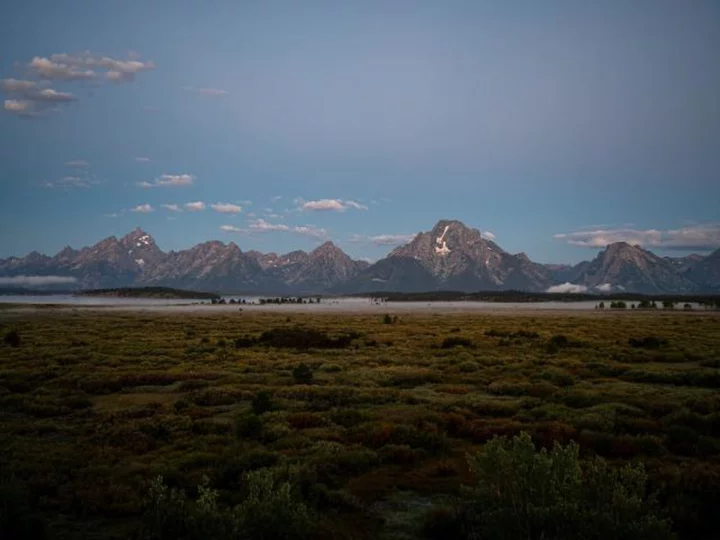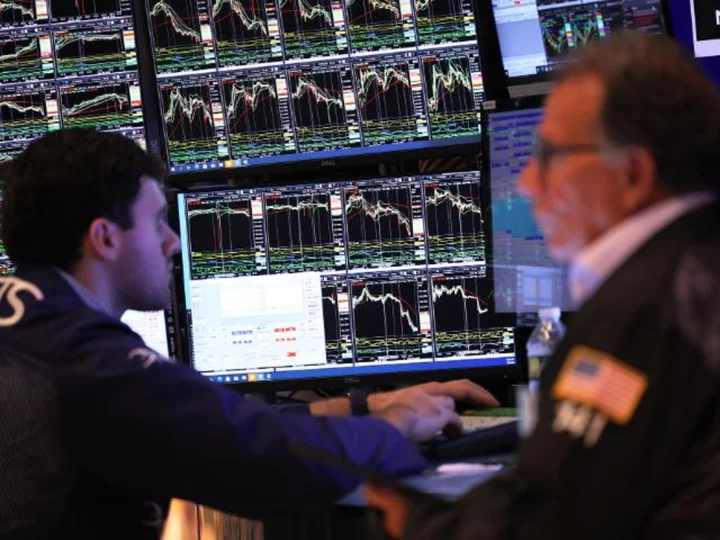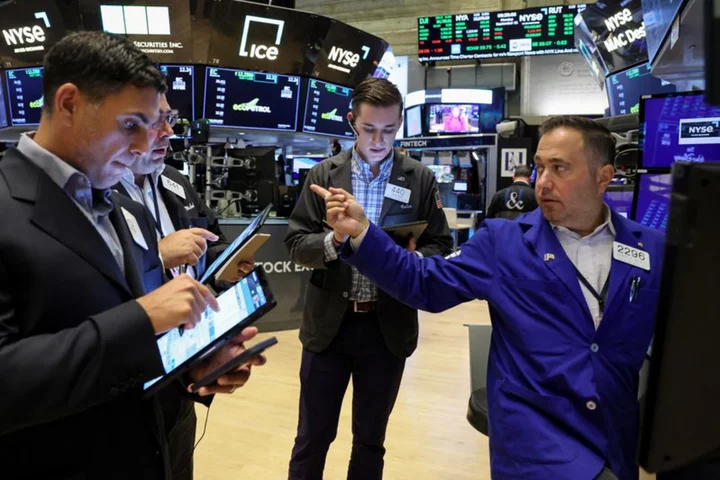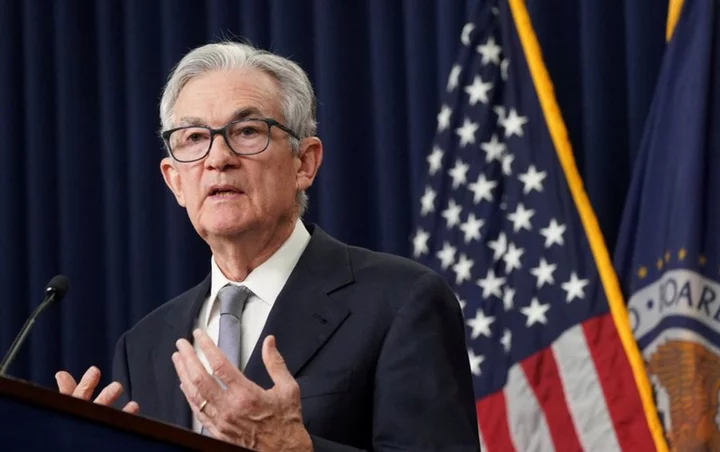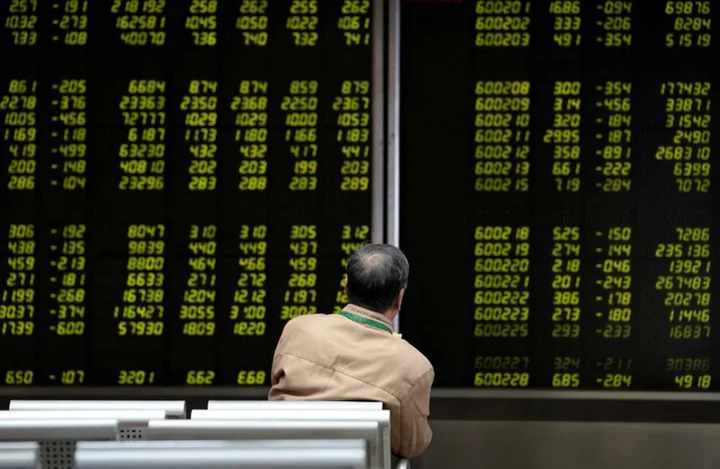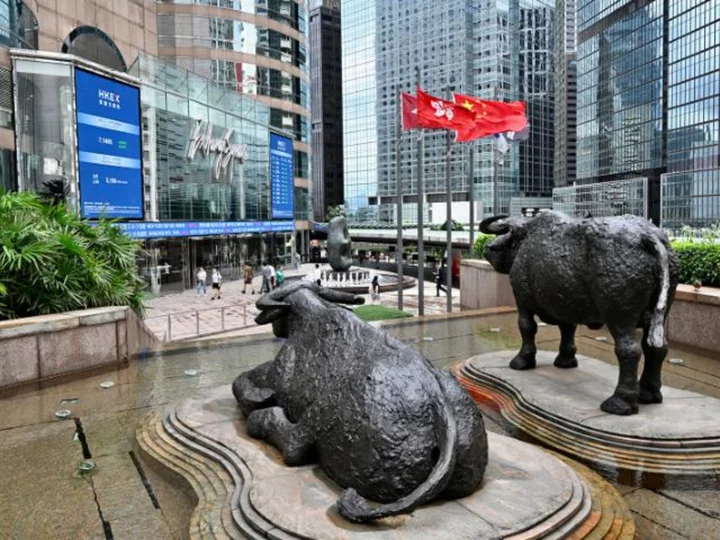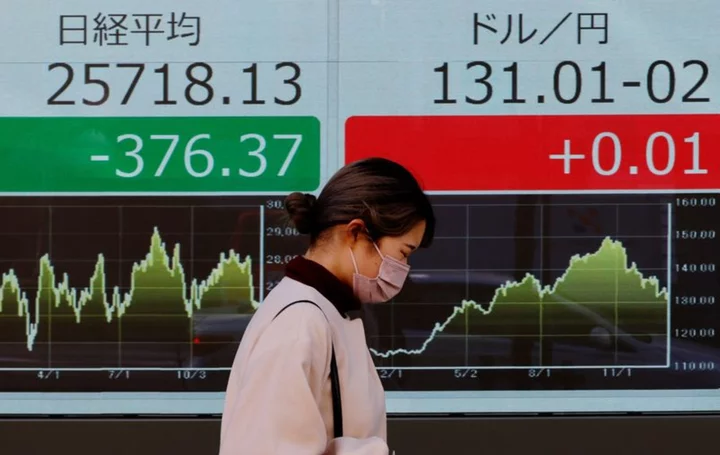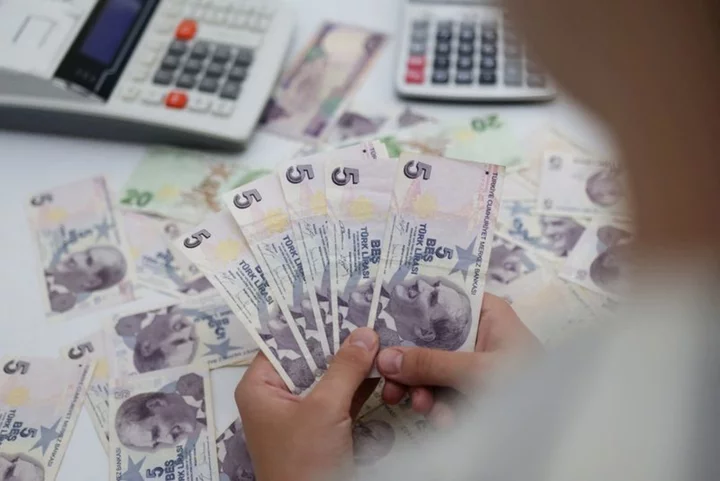Central bank officials from across the world have descended upon Jackson Hole, Wyoming this week to discuss policy decisions that will shape the economy for years to come.
But as they talk about inflation and the economy in the abstract, residents of the popular vacation destination are very much feeling the realities of their policies. That's because Jackson Hole is the most economically unequal place in the United States, according to the Economic Policy Institute.
What's happening: The snow kissed peaks and verdant valleys of Jackson Hole, Wyoming — where Federal Reserve Chair Jerome Powell is due to give a highly anticipated speech on Friday — aren't just awe-inspiring. They're also symbolic.
Among the top 1% in Teton County (where Jackson Hole is located), the average annual income is a jaw-dropping $22.5 million. The median household income in Teton County in 2021, meanwhile, was about $94,000, according to the US Census Bureau.
The annual August symposium of global financial leaders and economic elites wouldn't happen without the servers, cooks, drivers and hotel and event staff who make it function — the same people feeling the hard impact of elevated inflation, high interest rates and a softening economy the most.
"If you look at income, Jackson Hole is really a microcosm of the nation's wealth inequalities laid out across these dramatic landscapes of the Mountain West," said Kenan Fikri, director of research at The Economic Innovation Group, a bipartisan policy organization. "It's a ground zero for understanding how inflation affects the budgets of lower-earning households when they're already financially stressed."
For the first time in Jackson Hole real estate history, the average price for a single-family home topped $5 million at the end of 2022, doubling from 2019, when the average price was $2.6 million, according to the Viehman Group's semi-annual report. In the last quarter of 2022, the average rental rate for a home in Teton County was 13.3% higher than it was the year before, and the cost of living was 67% higher than the statewide average, according to an analysis by the Wyoming governor's office.
When housing costs are that high, said Fikri, any percentage increase on essentials like gas and food badly hurt the local workforce and make it harder for them to stay in the area. But if they can't stay, the local economy, based largely on tourism and service work, would cease to function.
"The workers and the consumers both need to hum along and be healthy," said Fikri, "and inflation and higher interest rates complicate that."
Two audiences: Over the past year, the Fed has been stuck between a rock and a hard place — main street is feeling the impact of inflation as consumers struggle to purchase increasingly pricey essential items like food, clothing and gas.
But Wall Street doesn't take kindly to interest rate hikes, which can negatively impact earnings and stock prices. In 2022, when the Fed hiked rates by 4.25 percentage points, the S&P 500 fell by nearly 20%.
The extreme wealth disparity in Jackson Hole is a perfect example of that dichotomy.
"Teton County has more income derived from wealth than anywhere else in the United States," said Fikri. In other words, Wall Street is well represented there.
So what does that mean for Powell as he shares his outlook for monetary policy on Friday? "It's important for the chairman to recognize the destination behind him," said Fikri. "It's a county in which many of the inequalities that define the US economy are exaggerated and an extra dose of awareness and humility will be perceived well by Americans."
Jackson Hole is a unique perch from which to regard the US economy, but you can't just look at it from the view of the people with vacation homes, said Fikri. You have to look at it from the view of the people in the kitchens of the restaurants too.
The hottest of hot stocks
August has been a bust, but overall the stock market has soared higher this year. That's largely because of one stock without much name recognition beyond the gaming community. Chipmaker Nvidia (NVDA) is up more than 222% year-to-date, report my colleagues Allison Morrow and Krystal Hur.
On Thursday, shares briefly hit an all-time high following super impressive second quarter earnings.
Although it's been known for graphics processors, Nvidia has now become almost synonymous with AI, after successfully diving headfirst into the production of the type of microchip that powers the promising technology. Demand has outpaced supply, making Nvidia the hottest of hot stocks: It's leading the S&P 500 this year by a mile, and is now one of only a handful of companies with a market capitalization of more than $1 trillion.
Investor enthusiasm for AI has also helped boost other tech stocks, but Nvidia is by far the most sought-after AI stock. The American chipmaker produces the building blocks of generative artificial intelligence (think ChatGPT and the like).
The Santa Clara, California-based company posted year-over-year sales growth of 101% in the second quarter. Revenue went from $6.7 billion in the second quarter last year to $13.5 billion this year. The results were even stronger than the $11.2 billion in revenue that Wall Street analysts expected.
Home affordability is the worst it has been since 1984
Buying a house is going to cost you: This is now the most unaffordable US housing market since 1984, reports my colleague Anna Bahney.
At today's rates, buying a median-priced home would require a monthly principal and interest payment of $2,440 for those making a 20% down payment, according to Black Knight, a mortgage technology and data provider.
That's $1,172 a month more in mortgage payments from just two years ago, before the Federal Reserve raised its benchmark lending rate 11 times in 18 months, Black Knight found. It's a 92% increase — and is taking a growing chunk out of household budgets already facing inflation on many fronts.
Currently, 38.6% of the median household income is required to make the monthly payment on the average home purchase, making housing the least affordable it's been since 1984, according to Black Knight.
"To put today's affordability levels in perspective, it would take some combination of up to a 28% decline in home prices, a more than 4% reduction in 30-year mortgage rates, or up to a 60% growth in median household incomes to bring home affordability back to its 25-year average," said Andy Walden, vice president of enterprise research and strategy at Black Knight.

